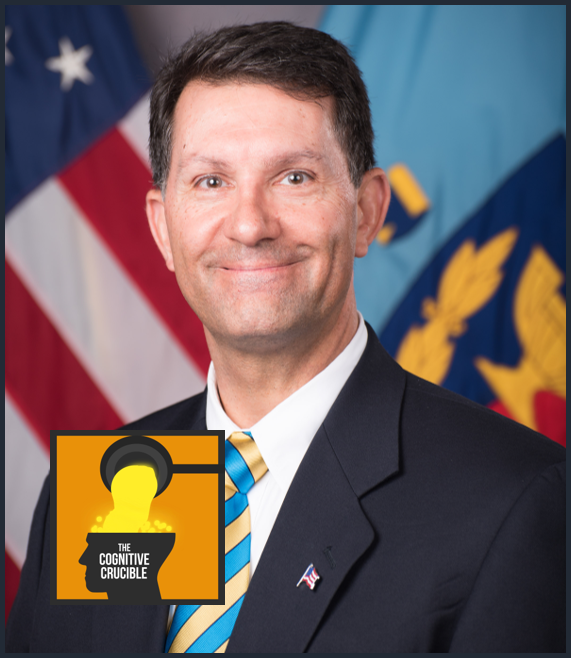
The Cognitive Crucible is a forum that presents different perspectives and emerging thought leadership related to the information environment. The opinions expressed by guests are their own, and do not necessarily reflect the views of or endorsement by the Information Professionals Association.
During this episode, Russ Burgos discusses the importance of defining terms–like information itself. He offers a way of thinking about information in supply/demand and behavioral economics terminology. Russ recaps his “Seven A’s of Information Success” and then projects these concepts into global influence efficacy.
Research Questions: Russ offers several questions worthy of additional research:
Resources:
Link to full show notes and resources
Guest Bio:
Russell Burgos is an Associate Professor in the Joint Special Operations Master of Arts program at Fort Bragg, North Carolina. He joined NDU after more than 12 years as a professor at UCLA, the University of Southern California, Claremont McKenna College, and Pepperdine University.
In addition to extensive experience teaching core courses in American and international politics, globalization, Great Power competition, and political theory, Dr. Burgos has designed and taught seminar courses on U.S. national security, homeland security, globalization and international security, American foreign relations, the economics of globalization, the Iraq War, Middle East politics, and US foreign and military policy in the Persian Gulf. At UCLA, Dr. Burgos was also employed as a research assistant to the late political scientist James Q. Wilson and to former UCLA Chancellor Al Carnesale, for whom he conducted research on arms control and weapons and technology proliferation.
In addition to his classroom experience, Dr. Burgos directed a Department of Defense-funded Track II military diplomacy program for senior Middle East military and government agency officials, designing and executing two multi-day conferences each year to encourage dialog, share perspectives on current and emerging security challenges, and support U.S. confidence-building measures. With access to a wide network of think-tank subject matter experts and senior active duty and retired officers from the US and NATO allies, the program included presentations, small-group discussions, and tabletop exercises focusing on issues of regional concern, including the military balance, emerging technology and warfare, the effects of political changes on regional stability and security, border control, lawfare, military operations in urban terrain, anti-piracy and counter-terrorism operations, and pandemic disease response.
Dr. Burgos has written articles and book chapters on national security policy, US Middle East policy, strategy and policy in the Persian Gulf, the effects of Special Operations Forces on regional and global stability, the teaching of international politics, and academic techniques and best practices for Professional Military Education students.
He is a former Signal and Psychological Operations officer, an active wargamer, presents frequently at professional conferences, has appeared on radio, television, and podcasts and before community and service organizations in the U.S. and abroad to offer expert commentary on U.S. national security policy and strategy, and has served as a military technology and military history consultant for television and film productions.
About: The Information Professionals Association (IPA) is a non-profit organization dedicated to exploring the role of information activities, such as influence and cognitive security, within the national security sector and helping to bridge the divide between operations and research. Its goal is to increase interdisciplinary collaboration between scholars and practitioners and policymakers with an interest in this domain.
For more information, please contact us at communications@information-professionals.org.
Or, connect directly with The Cognitive Crucible podcast host, John Bicknell, on LinkedIn.
Disclosure: As an Amazon Associate, 1) IPA earns from qualifying purchases, 2) IPA gets commissions for purchases made through links in this post.